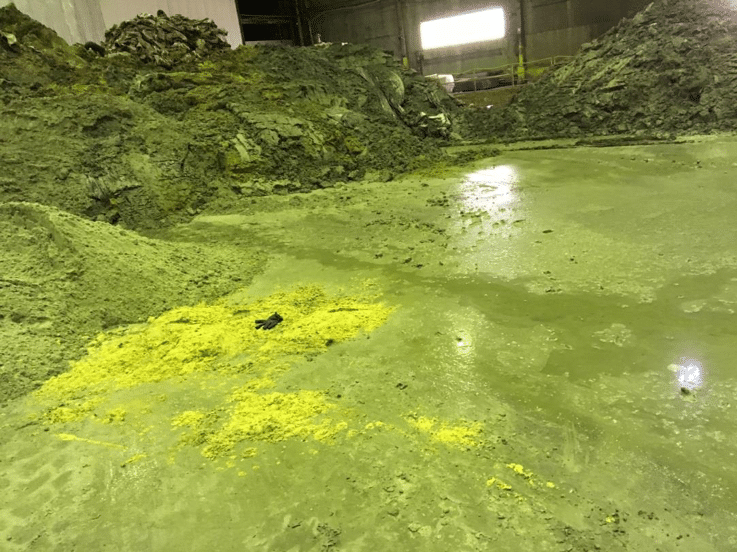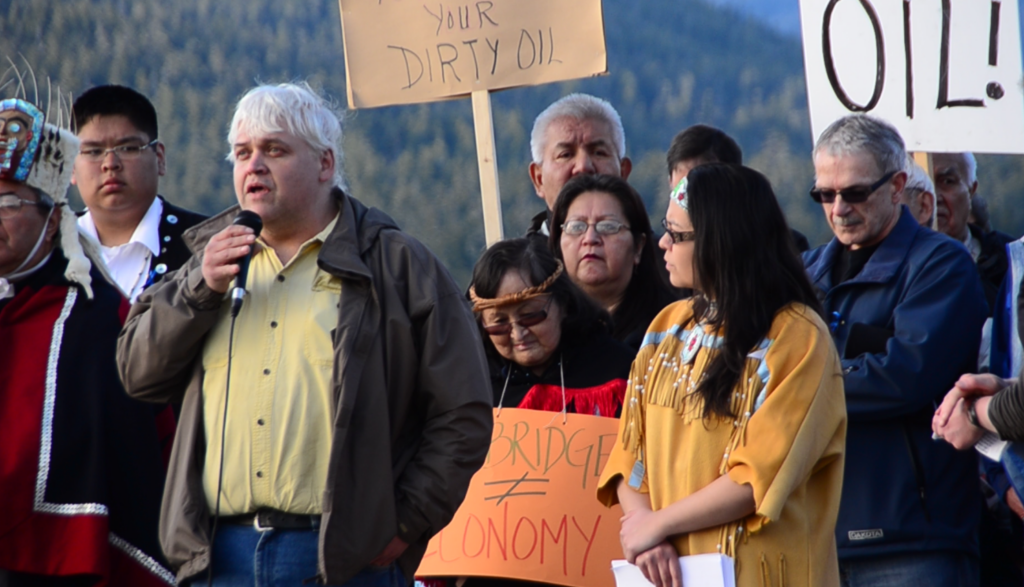The U.S. Environmental Protection Agency (EPA) has flagged an Ohio oilfield waste processing facility with a history of radioactive contamination for possible inclusion under the agency’s Superfund program, reserved for the nation’s most contaminated hazardous waste sites.
Last year, EPA toured the Martins Ferry facility, operated by Pennsylvania-based Austin Master Services, at the request of Concerned Ohio River Residents (CORR). This local advocacy group has documented a lengthy list of concerns. In a March 31, 2023 letter to CORR, EPA said the agency “primarily evaluated potential chemical and radionucleotides releases from [Austin Master Services] based on prior operations, and treatment and processing of fracking waste.”
The next steps include a two-year site inspection, in which EPA will visit the facility, which is part of a larger property called 4K Industrial Park, to collect data, assess contamination, and characterize the potential contaminants and their movements. Macy Pressley, a spokesperson with EPA Region 5, which covers Ohio, says EPA will work with local property owners to obtain access to collect samples, and that the Ohio Department of Health and Ohio Department of Natural Resources (ODNR) have been notified.
Austin Master operates in a former steel mill located on the same street as the Martins Ferry high school football stadium and less than 1,000 feet from city drinking water wells. The facility has ODNR authorization to annually receive 120 million pounds of oilfield waste, which can contain elevated levels of radium and other radioactive elements. At the plant, located near the Ohio River, workers dilute waste by mixing it with material like lime to lower the radioactive signature before shipment to either local landfills, or, for the more highly radioactive waste, to secure disposal facilities outside the state.
The irony of EPA considering Austin Master’s plant for Superfund status is that a 1980 federal exemption recognizes oilfield waste as non-hazardous and therefore exempt from federal rules that would otherwise apply to hazardous waste. But assessing this facility under Superfund may allow the EPA to recognize that oilfield waste is, in fact, hazardous and provide oversight that has so far eluded these types of facilities.
“It is a victory,” Beverly Reed, an Ohio Valley business owner and member of CORR, says of EPA’s decision. “The U.S. EPA views the levels of radium as a problem and they are taking action. That’s huge for a small citizen’s group, especially given the amount of pushback we’ve gotten from the city of Martins Ferry.”
Related: Radioactive Waste ‘Everywhere’ at Ohio Oilfield Facility, Says Former Worker
Prior DeSmog stories report how CORR has documented unsafe levels of radium in the public road outside the facility and on the boots and other items worn by workers. DeSmog has also revealed that trains carrying Austin Master’s radioactive oilfield waste from Ohio to a Utah disposal facility has arrived leaking on multiple occasions.
Martins Ferry officials have not replied to repeated questions regarding the fracking waste facility.
Austin Master has not replied to questions. The facility will be able to continue operations as usual as EPA conducts the inspection.
The Larger Problem of Fracking Waste Persists
Presently, more than a third of America’s natural gas supply comes from wells in Ohio, West Virginia, and Pennsylvania. All of that drilling produces huge volumes of liquid and solid waste that need treatment and disposal. Oilfield waste service companies pick it up directly at the wellhead, and sometimes perform an initial processing, before bringing some of it to facilities like Austin Master for additional treatment.
But dealing with radioactive oilfield waste has proven enormously problematic for the oil and gas industry and its regulators, giving rise to a booming service sector of facilities like those run by Austin Master that collect, treat, and process the waste. ODNR does regulate the state’s roughly two dozen oilfield waste processing facilities, but in a limited way — for instance, the agency does not have the authority to issue fines. However, at Austin Master, ODNR inspectors have observed waste splattered on the floor and walls, tracked out of the facility on truck tires, and falling off a truck leaving the facility.

“Austin Master Services is operating according to Ohio law and rule,” says ODNR spokesperson Andy Chow, “and ODNR will continue to regulate the operator accordingly.”
Ken Gordon, a spokesperson with the Ohio Department of Health, said his agency has been in regular contact with EPA, as well as the Ohio Environmental Protection Agency and ODNR and “will continue to cooperate with and assist our partners in any manner possible.”
EPA’s interest in the facility suggests that state regulations and oversight have not been robust enough to prevent potentially serious harms, something community and environmental advocates have been arguing for years.
The situation at Austin Master “demonstrates what so many communities in the shale patch have known all along, oil and gas waste processing poses a serious risk to communities,” says Megan Hunter, a senior attorney with Earthjustice, a national environmental nonprofit closely tracking oilfield waste contamination in the Ohio River Valley region. “It is truly a victory to have caught the agency’s attention and secured action, particularly when the source is a toxic substance that EPA has thus far been reluctant to regulate.”
But when asked if EPA had plans to assess other fracking waste treatment facilities across the country for potential Superfund status, Pressley, the EPA spokesperson for Region 5, said that the agency’s decision regarding the Austin Master site, “would not be applicable to other sites.”
“We will continue to apply pressure and advocate for our community,” says Reed, with CORR. “We have showed that citizen action and advocacy matters.”
Subscribe to our newsletter
Stay up to date with DeSmog news and alerts







